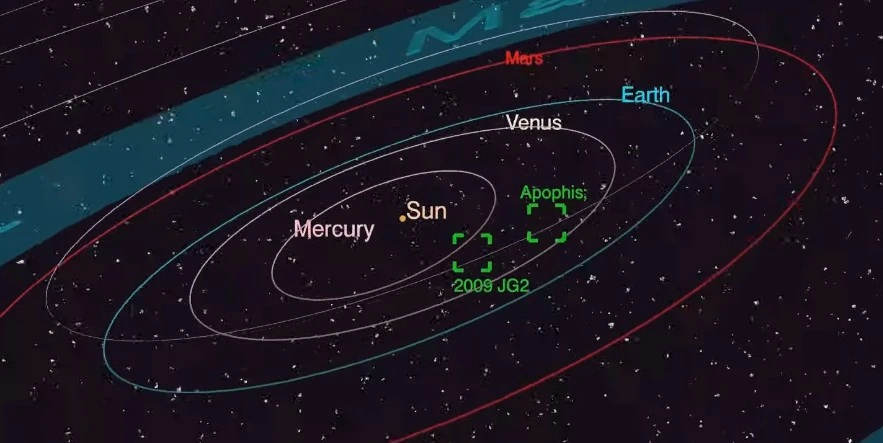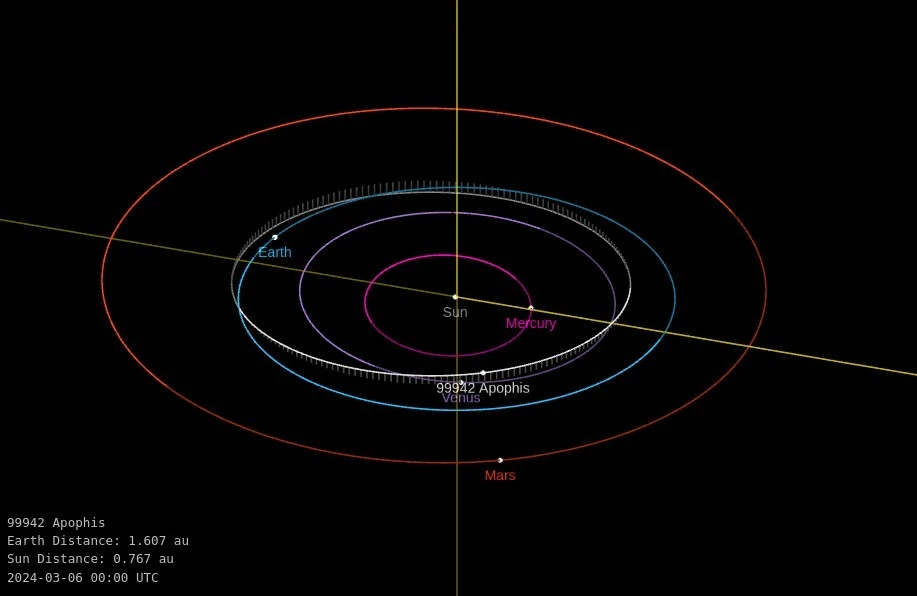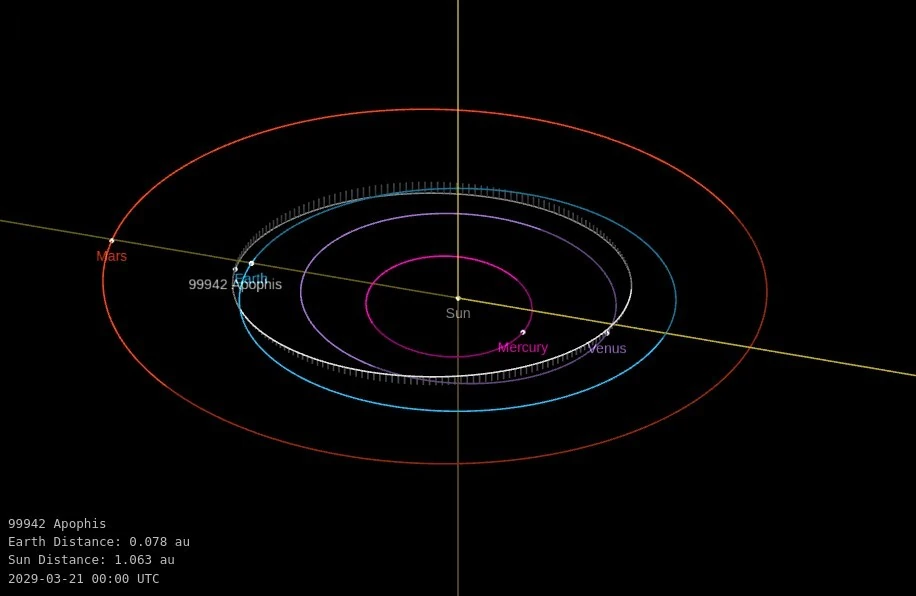Study confirms no risk of asteroid Apophis being redirected toward Earth by other asteroids

A comprehensive study by astronomers from Western University calculated the paths of all known asteroids and found there is no risk of the notorious asteroid Apophis colliding with another space object and altering its course toward Earth, further dispelling fears of a potentially catastrophic impact in April 2029. Apophis is named for the demon serpent, who personified evil and chaos in ancient Egyptian mythology.
The discovery of asteroid 99942 Apophis in 2004 sent ripples through the global community as initial observations indicated a probability of up to 2.7% that it would hit Earth in 2029. While subsequent research showed there is no chance of it impacting Earth within the next 100 years, there remained a small chance of collision with another asteroid that would alter its course and set it to impact Earth.
However, recent research led by Western University’s Paul Wiegert, in collaboration with Benjamin Hyatt of the University of Waterloo, has ruled out that possibility.
At the heart of their study is a detailed simulation encompassing all 1.3 million known asteroids, aimed at assessing the possibility of any impacting Apophis and altering its course.


“We calculated the paths of all known asteroids using a detailed computer simulation of our Solar System and the possibility of such an unlikely event was evaluated,” said Wiegert, a physics and astronomy professor. “Fortunately, no such collisions are anticipated.”
With an estimated width of 335 m (1 099 feet), Apophis has been a subject of intense scrutiny due to its close approaches to Earth, notably in 2029 and 2036. While previous assessments have assured its safe passage, with the nearest approach in 2029 bringing it within a mere 0.09 LD (37 399 km / 23 237 miles) of Earth, the study preemptively addresses any concerns about potential deflections in its orbit.
The research, which is set to be published in the Planetary Science Journal, also highlights a particularly close encounter with the 1 300 m (4 265 foot) wide diameter asteroid 4544 Xanthus in December 2026. Despite the close pass, the researchers have conclusively ruled out a collision, though they advocate for continued monitoring of Apophis and other asteroids to refine our understanding of their trajectories.
“Asteroid Apophis has fascinated us as a species since its discovery in 2004: it was the first credible threat from an asteroid to our planet,” said Wiegert. “Even now that we know it’s on course to miss us by a safe margin, astronomers remain vigilant. It’s the asteroid we just can’t stop watching.”
For context, if asteroid Apophis were to impact Earth, the consequences would be catastrophic, not only due to the immediate blast but also because of the secondary effects that would follow. An impact by Apophis, which measures about 335 m (1 099 feet) in diameter, would release energy equivalent to thousands of nuclear bombs detonating simultaneously. Impact on land could result in a crater approximately 48 km (30 miles) in diameter.
The immediate vicinity of the impact site would be obliterated, and the shockwave from the impact would cause devastating effects far beyond the initial crater, including tsunamis if it were to strike in an ocean. The ejected debris could lead to global cooling, affecting climates around the world and disrupting agriculture for years, potentially leading to a “nuclear winter” scenario.
References:
1 ‘Zero chance’ infamous Apophis collides with another asteroid, redirects to Earth – Western University – March 4, 2024
2 Encounter circumstances of asteroid 99942 Apophis with the catalogue of known asteroids – Paul Wiegert and Ben Hyatt – Planetary Science Journal – March 1, 2024 – arXiv:2403.00541 [astro-ph.EP]
Featured image: Paul Wiegert


Commenting rules and guidelines
We value the thoughts and opinions of our readers and welcome healthy discussions on our website. In order to maintain a respectful and positive community, we ask that all commenters follow these rules.